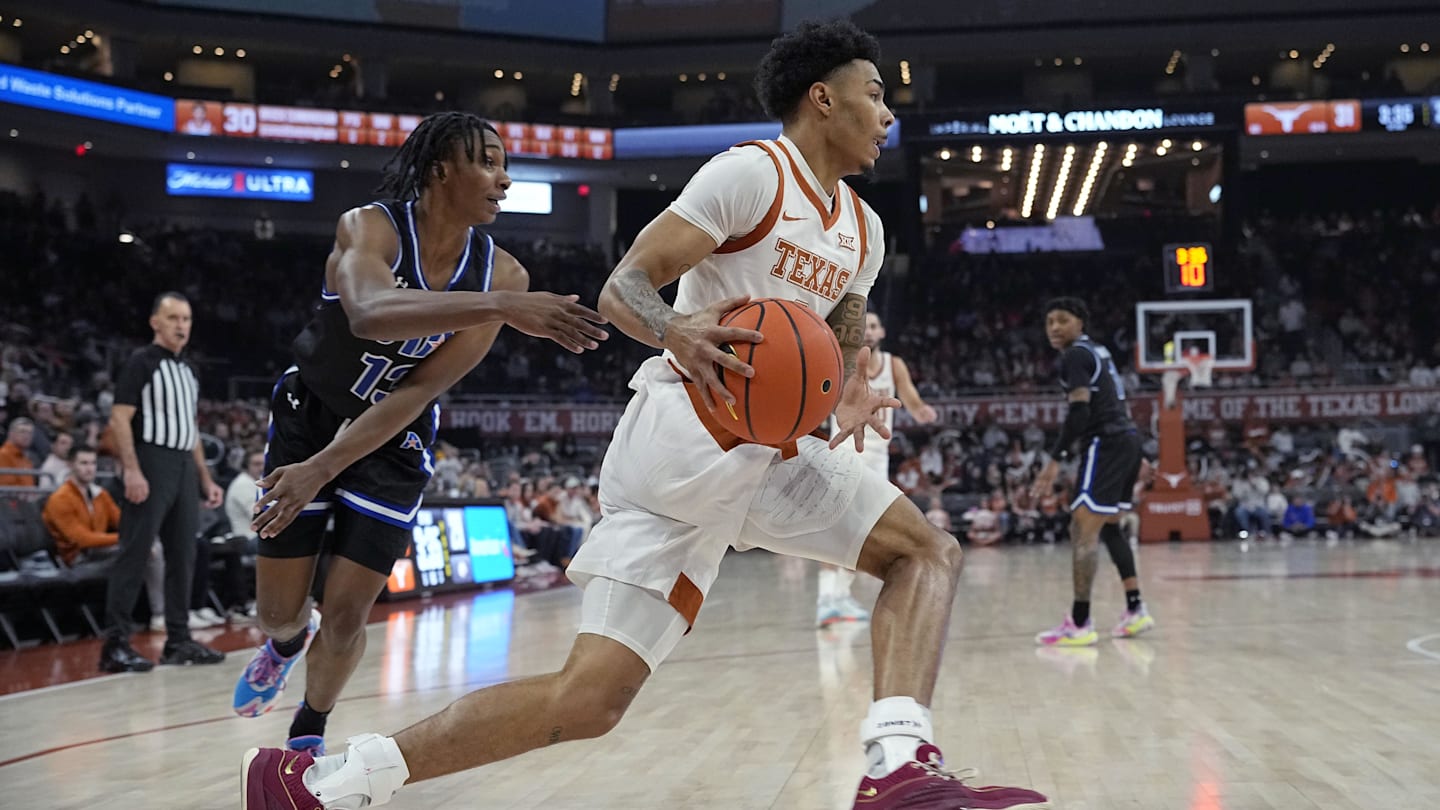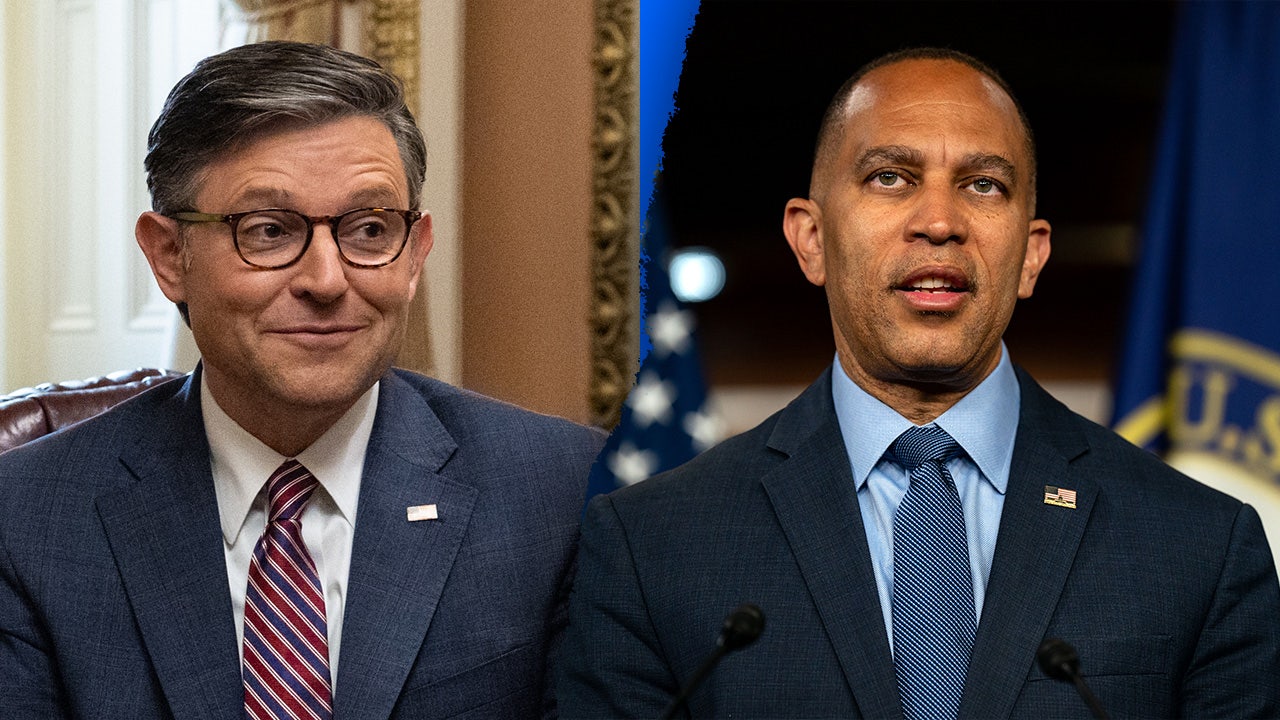CNN
—
No one may have been more surprised by the decisive moment in last week’s first GOP presidential debate than Desmond Meade.
Meade is executive director of the Florida Rights Restoration Coalition, which works to restore voting rights in the state to former felons. Florida has long been one of the states that have made it most difficult for former felons to recover the ability to vote. In 2018, the coalition led a successful effort to pass a constitutional amendment to make it easier for those residents to regain that right.
Ron DeSantis, then a candidate for Florida governor, opposed that amendment when it appeared on the ballot. And then in 2019, as governor, DeSantis supported and signed Republican-backed legislation that significantly diluted the amendment’s impact by adding a requirement that former felons pay any fines or fees they owed before they could vote again in the state.
So, Meade was stunned when he saw DeSantis, after initially hesitating, raise his hand to join five of the eight Republicans on the debate stage in declaring that they would vote for Donald Trump as the GOP presidential nominee next year even if he is convicted of a crime before the election. DeSantis’ willingness to vote for Trump even if he is found guilty on any of the 91 felony criminal charges he’s now facing presents a “dramatic conflict” with his policies as governor toward allowing former felons to vote at all, Meade said.
If DeSantis “is supportive of a person with a felony conviction running for the highest office, then he should be supportive of everyone getting their rights restored so they can vote even for their [city] councilman,” Meade said.
Both the legal and political situation surrounding Trump are fluid and uncertain. It might be that none of the four criminal cases against him come to trial before next November’s election (though the federal judge supervising his case for allegedly trying to overturn the 2020 election on Monday set a trial date of March 4.) He might be acquitted in any of the cases that do get to court. Alternately, he might not win the GOP nomination.
But if those circumstances do converge – and Trump both wins the nomination and is found guilty of a felony – he would shine an enormous spotlight on how other convicted felons are treated in the political system every day.
The principal issue should not be whether Trump, if he’s convicted, receives special treatment “other people don’t get but … if we are willing to consider it for this high-profile candidate for office, should we reconsider how we are imposing these prohibitions on other people?” said Insha Rahman, vice president of advocacy and partnership at the Vera Institute of Justice, a group that advocates for criminal justice reform.
Likewise, Neil Volz, the deputy director of the Florida coalition, said “That picture of those six people raising their hand is a historic photo. It represents the ground shifting underneath us as we speak.” The image of Republican candidates saying they would support Trump if he’s the GOP nominee next November, regardless of whether he’s also a convicted felon by then, will increase pressure on states to reconsider policies that limit former felons’ ability to participate in the political process, Volz maintains. “Those two images are not going to be able to live together,” he predicted.
It might seem speculative now, but if Trump wins the nomination as a convicted felon, Florida law would force state officials – including DeSantis – to decide whether he should have rights unavailable to others in his situation. Trump is registered to vote in Florida. Under normal procedure in the state, if he is convicted of a felony in any jurisdiction before the 2024 election, he would not be eligible to vote in Florida until he has completed his sentence, even if he’s appealing that verdict. And in that circumstance, he might not even be eligible to appear on the state ballot, some legal experts say.
If Trump is found guilty of a felony before the election, “There is at least considerable merit and weight to the argument that not only could he not vote, but arguably he couldn’t be on the ballot to enable anyone else to be able to vote for him, meaning he would not be in play for Florida’s electoral votes,” said Mark Schlakman, a law professor at Florida State University who served as a counsel on clemency issues to former Florida Gov. Lawton Chiles.
Among the 50 states, only Maine and Vermont (as well as the District of Columbia) allow felons to vote while they are serving their sentence, according to the National Conference of State Legislatures. In about half the states, felons automatically recover their right to vote after they have completed their sentence. In the other half of states – mostly red states that lean Republican – felons must meet other conditions, such as completing probation and parole and paying any fines or restitution, or must receive a pardon from the governor to recover their rights.
One authoritative study in 2022 calculated that 4.6 million Americans were prohibited from voting at the time because of a felony conviction, three-fourths of whom are living in their communities, having completed their sentences or remaining supervised under probation or parole.
Florida, historically, has been among the states that made it most difficult for felons to recover their rights. Before state voters overwhelmingly approved the 2018 ballot initiative known as Amendment 4, Florida was one of the very few states that imposed a lifetime ban on voting for former felons. The state also barred them from serving on juries or holding public office.
The only way felons could recover those rights was through a decision by the State Board of Executive Clemency, which consists of the governor and the other three elected statewide officials: the attorney general, agriculture commissioner and chief financial officer. But that pathway was exceedingly narrow: during the two terms when current Republican Sen. Rick Scott served as Florida governor, for instance, he restored civil rights to only a tiny trickle of former felons and required them to wait at least five years after completing their sentence to apply for restoration. At the time the state passed Amendment 4, Florida accounted for nearly one-fourth of all former felons in the US who were denied the right to vote, said Meade, a former felon himself who later graduated from a Florida law school.
Amendment 4 automatically restored voting rights to former felons, except those convicted of murder or sexual offenses, who have completed their sentences. (The amendment did not address the right to serve on a jury or hold public office.) In 2019, though, the GOP-controlled Florida state legislature, with DeSantis’ support, passed legislation additionally requiring that former felons pay all outstanding fees and fines before recovering their voting rights.
But while adding that requirement, the state has not established any centralized data base that would allow former felons to easily determine how much they owe, and to which entity, before they are eligible to vote. (The coalition sued the state in July over that system.) Initially, organizers projected that Amendment 4 would restore voting rights to about 1.4 million Floridians, but as a result of these new hurdles only a little over 600,000 have actually regained their voting rights, Meade said. The state has prosecuted some former felons who erroneously believed they were eligible to vote, in some cases because local officials registered them.
All of this maneuvering is the backdrop to the explosive decisions Florida officials, starting with DeSantis, could face next year.
Even after Amendment 4, felons are required to have completed their sentence before recovering their voting rights in Florida, as in virtually all other states. If Trump is convicted of a felony before the election, and is appealing that conviction, he would not have satisfied that condition, Meade and others point out. “Even though you may be appealing, at the point of the conviction, you are a convicted felon,” Meade said. “That means you’ve lost all your civil rights” under Florida law.
In Florida, those rescinded rights also include the right to hold public office. Whether that prohibition applies only to state and local positions in Florida or also covers federal offices is a question the courts might eventually need to resolve. Although the legal question is murkier than on the issue of voting eligibility, Schlakman believes there is a strong case that Florida’s prohibition on convicted felons holding public office does in fact extend to federal offices. And if that’s the case, he says, it logically would prohibit Trump from appearing on the state’s ballot next year if he both wins the GOP nomination and is convicted of a felony.
“There may not be a definitive answer to that, but generally if someone hasn’t had his or her civil rights restored … you can make a strong argument that that person wouldn’t appear on the ballot,” said Schlakman, the senior program director for the Florida State University Center for the Advancement of Human Rights. If someone is ineligible to actually hold office, he continued, “where is the logic in enabling or authorizing someone to put his or her or their name on the ballot? Then the election gets skewed if anyone votes for this person. And what happens then?”
In Florida law, there’s a big escape hatch that could allow Trump, as the GOP nominee, to surmount these restrictions and both vote and appear on the ballot: a decision by DeSantis and the other members of the state clemency board.
Intervening to restore those rights to Trump, if he’s convicted of a felony before the election, would represent a stark departure from the clemency board’s typical procedures. The board’s own rules state that convicted felons cannot apply to recover their civil rights (including the right to vote and to hold office) until “the person has completed all terms of sentence … arising from the applicant’s felony conviction or convictions.” The rules also say felons cannot seek restoration of their rights while they are facing any other “pending criminal charges”– a situation that would almost certainly still apply to Trump next year even if one or more of the four criminal cases against him are completed.
But all experts agree the clemency board has virtually unlimited authority to supersede any of these rules so long as both the governor and two of its other three members agree to do so. Besides DeSantis, the board’s other three members are also all Republicans. “The governor and cabinet have essentially unbridled discretion to restore rights,” said Schlakman.
Such an intervention by the Florida state board to restore voting rights (or the right to hold office) to someone convicted of a felony before they have served their sentence would be exceedingly rare and even virtually unprecedented, not only in Florida but around the country, experts say.
Asked how unusual it would be for a state to restore voting rights for a felon while he or she is appealing their conviction, the Vera Institute’s Rahman, a former public defender, said: “I think so rare that it has probably never happened before and that this highly unusual circumstance is the first time this has been discussed, debated or considered.”
Likewise, Volz, a former felon himself who has worked on these issues for 10 years in Florida, said “I haven’t heard of anyone having that happen.”
Both DeSantis’ gubernatorial office and his presidential campaign did not respond to emailed questions about whether he would support restoring Trump’s right to vote and hold office in Florida if the former president wins the GOP nomination but is convicted of a felony. DeSantis’ offices also did not respond to a question about whether the governor has ever previously supported the clemency board restoring civil rights to a convicted felon in Florida before that person had served their sentence.
Trump’s situation could force unprecedented attention on the political system’s treatment of former felons. But the declaration of potential support he received at the debate from so many of his rivals crystallizes an even more fundamental issue.
By raising their hands to indicate they would back Trump even if he’s found guilty of a crime, the six other Republicans continued the party’s yearslong pattern of normalizing and excusing behavior from Trump that threatens the underpinnings of American democracy and the rule of law, said Ian Bassin, co-founder and executive director of Protect Democracy, a non-partisan group. “What does it do to a country and democracy when its ostensible leaders not only abdicate the role they are supposed to play as a bulwark against authoritarianism, against the dismantling of the system and undermining of institutions, but they actually validate the behavior of those that would undermine our republic?”
These are questions Americans have not faced in modern times, and perhaps ever. But they are hurtling toward the nation as Trump’s legal and political trajectories collide. If Trump wins the Republican presidential nomination as a convicted felon, Florida law ironically ensures that no one will be forced to grapple with these questions more directly than the rival he would have defeated along the way, Ron DeSantis.






























